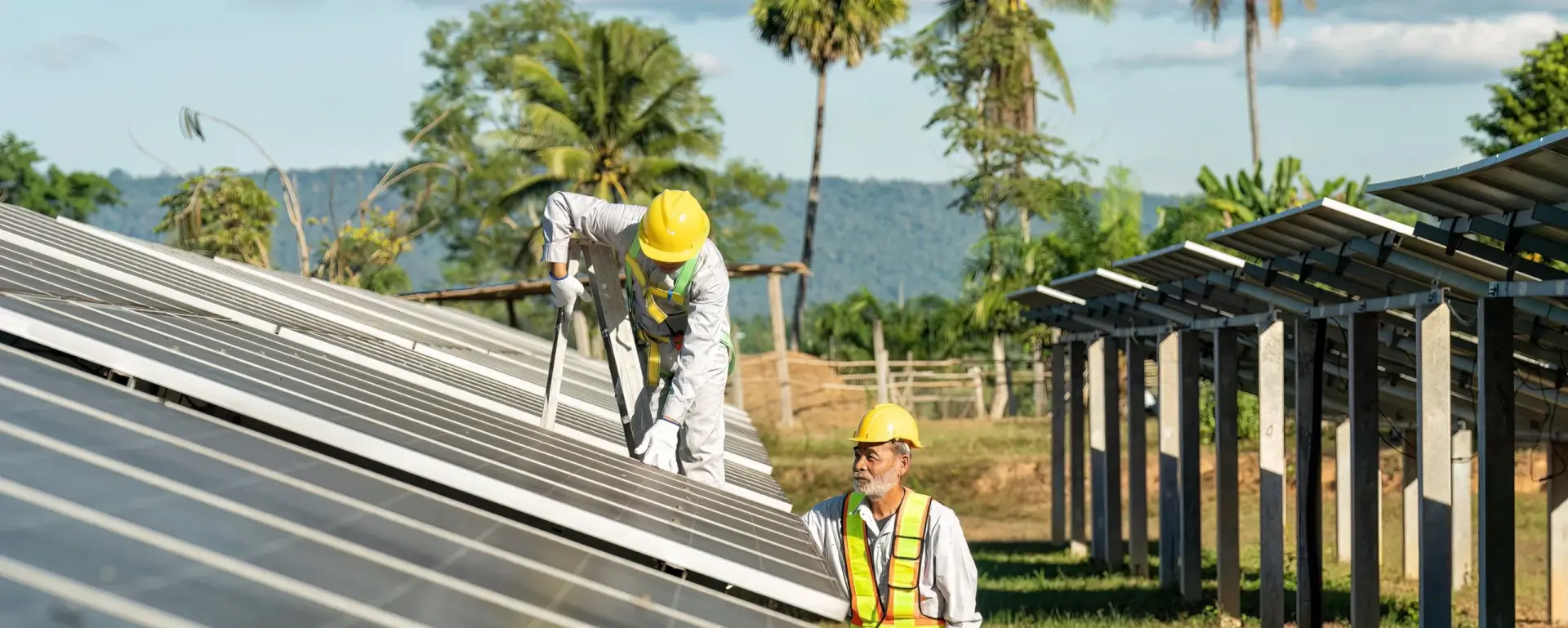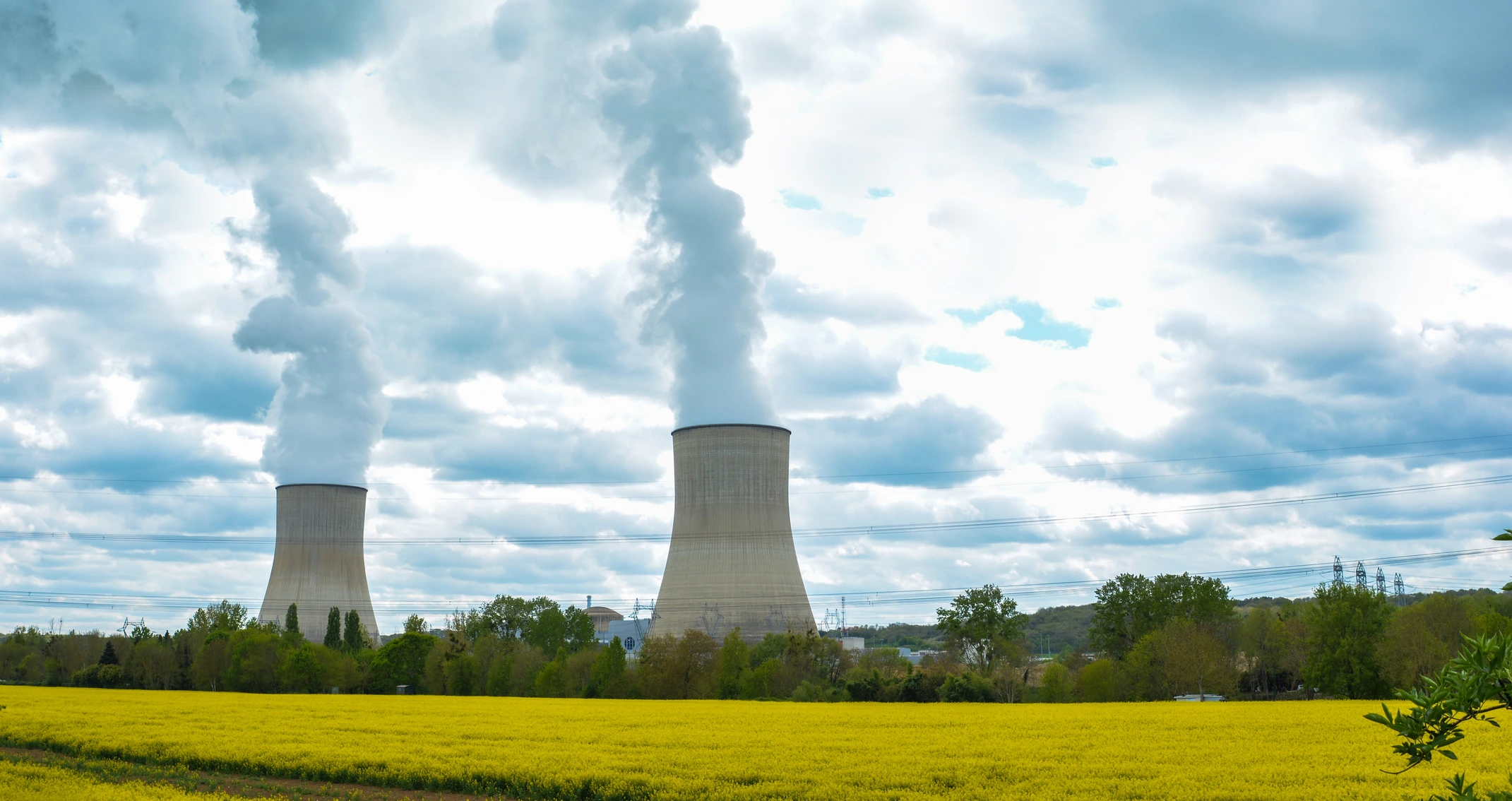
In India, solar power is a fast-developing industry: the country installed a record volume of the renewable power source in 2022. Given that 70% of India’s energy currently comes from coal, that initially might sound like good news to those concerned about climate change.
But the process of installing large-scale solar power plants has been complex and troubling for many communities and activists, as it is often carried out in undemocratic and environmentally destructive ways. In Mikir Bamuni Grant village in Assam, for instance, fertile paddy land was forcibly taken from farmers by a renewables company in 2021 to set up a solar power plant. The land grab and dislocation were backed by the local police and district authorities; villagers who resisted were arrested and jailed. In other states such as Karnataka, farmers have leased their land on an ostensibly temporary basis to solar plant companies, and then found the land cleared of biodiversity and natural features: thus, destroying its potential for food production in the future. These communities lack the skills to transition to other kinds of livelihoods, and the solar parks have offered very few jobs to locals.
“There is this sense that you can just take renewables, and plunk them in the place of polluting, greenhouse-gas-emitting sources, and we’re home free,” said Sheila Jasanoff, Pforzheimer Professor of Science and Technology Studies at Harvard University – and a principal investigator in a recently-completed three-year project funded by the Transformation to Sustainability (T2S) programme of the Belmont Forum, the NORFACE network, and the International Science Council, called Governance of Sociotechnical Transformations (GoST), in which researchers in Germany, India, Kenya, the UK, and the USA studied the politics of transformations to sustainability in three sectors – energy, food, and urbanisation. “But you’re actually talking about technologies that themselves have cradle-to-grave implications: you can make a sea of solar panels, but how are you going to keep them clean? How are you going to deal with their obsolescence and ultimate disposal? These questions – which are familiar to environmentalists – have not been asked systematically in the context of transition and transformation.”
The solar story is one thread of a wider challenge: the tendency amongst decision makers to envision transformations to sustainability as purely technical processes – at the expense of their political, economic, social, and philosophical dimensions. “We all know that the challenges of sustainability, whether they’re the political side or the environmental side, are deeply complex and deeply uncertain,” said Andy Stirling, a professor of science and technology at Sussex University and another principal investigator for GoST. “If they weren’t, then we would have gotten there a long time ago. And yet there’s somehow this pressure to pretend that sustainability is a singular, simple, technical objective.”
It is an understandably alluring premise. Technology-driven transformations to sustainability can easily be imagined at multiple scales using scientific modelling techniques, and they seem not to make high demands on individuals for lifestyle change (such as flying less or eating less meat). “They can be couched in politically neutral language, as necessary and inevitable, and hence not possible to argue with, and laden with promises of a better and more prosperous future, such as more power (energy), mobility (smart cities), or yield (agriculture),” said Silke Beck, the project leader and a Professor of Sociology of Science and Technology at TU Munich. The GoST project, however, effectively highlighted that such transitions are never, in fact, politically neutral.
For instance, the researchers found through long-term international comparisons that the so-called ‘nuclear renaissance’, which has been framed as a logical strategy in a portfolio for climate action, makes little practical sense given the unfavourable costs, build-times, and other operational features, when compared to other renewable energy options. Rather, as GoST highlighted for the first time in peer-reviewed literature, “the real driving forces are in fact far more military – in particular, the pressures in [some] nuclear-armed countries to maintain national industrial capabilities to build and operate nuclear-propelled submarines.” More than energy or climate considerations, what is evidently at work here is the compelling colonial allure offered by nuclear weapons status of “a seat at the international top table”.

Photo: o1559kip.
Given the limitations of dominant T2S narratives, the GoST project approached the topic differently. The project teased out some of the ways in which societies form their visions of a sustainable future, and explored whether different ways of doing so could help to achieve transformations to sustainability. It is hoped that this information can now help policymakers to develop more effective and equitable ways of governing transformations to sustainability. The project used a ‘socio-technical imaginaries’ (STI) framework to capture the dimensionalities and temporalities of transformations to sustainability and to expose relevant governance issues. It worked from a ‘co-productionist’ viewpoint that considers how knowledge is produced collectively between science, technology and politics, and applied a comparative approach to help researchers understand how and why context matters in transformations to sustainability.
“We look at the idea of transformation as a so-called ‘imaginary’: that is, a collectively-held vision of what the future could look like,” said Jasanoff. “The way in which any society imagines its future, including its environmental future, rests on very deep-going cultural understandings: what governance is all about; what is the state; what is it doing; how does it relate to society; and what are its responsibilities?” As part of the research, the collaborators conducted participatory workshops in the five project countries, where stakeholders – including local government officials, communities involved in and affected by technocratic transformations, NGOs, media, as well as scholars across various fields of research – were invited to discover and share their visions of sustainable and just futures and ways to realize them.
The workshops were action-oriented: “it was not just about generating information [but] about building a movement towards real change within the different sectors,” said Joel Onyango, CEO of the African Researchers Consortium and a Kenya-based partner in the research. “So being able to convene sessions… means that we are also creating an opportunity for different stakeholders to work together, but also learn different nuances of imaginaries and development.”
The COVID-19 pandemic created a kind of unexpected experiment, allowing the GoST research team to observe in real time many of the governance issues that are at stake in sustainability transformations. When the pandemic hit, governments around the world quickly implemented a series of measures for which environmental activists have been advocating for decades, such as travel bans, restrictions on aviation and enforced reliance on local foods. The relative compliance with – and controversies over – these measures in the countries studied illustrate significant correlations between citizens’ sense of solidarity and the state’s ability to enact and enforce restrictive measures.
In general, people accepted even highly intrusive mandates with least complaint in those national or subnational contexts where social connectedness, or solidarity, was already strong – as in Germany, said Beck who was co-leading the German case studies. The US case, however, illustrates the vehemence of the opposition to mandated lifestyle changes in many parts of the country, and a continued resistance to the asserted urgency of the health problem by scientists who are seen (as also in the climate case) as serving a liberal or progressive political agenda, tied to more state intervention than many Americans are prepared to tolerate.
The researchers concluded that transformations to sustainability will require far more democratic, participative and open forms of deliberation and collective decision-making about norms, values and desired futures, than currently exists in the locations studied. “Science and technology are absolutely crucial, but they’re necessary and not sufficient,” said Stirling. “If we’re going to achieve sustainable societies in terms of social justice and environmental protection, then we’re going to need to treat the political dimension really seriously – and be democratic about it.”
That means transformations to sustainability research, knowledge coproduction, and transformative learning should not be seen as instruments for changing individual behaviour and social values to achieve pre-defined objectives such as th.e Paris Agreement or the Sustainable Development Goals. Rather, says Beck, transformations to sustainability need to be reframed as a potentially more controversial terrain for conflicting visons of sustainable development to confront and engage with each other. Rethinking transformations to sustainability also calls for inviting a broader range of societal actors (beyond technical experts) to imagine desirable futures and to design pathways and options to meet them.
“Part of this lies in seeing projects like ours not just as academic studies, nor even as ‘transdisciplinary research’, but as activism,” said Stirling. “And that doesn’t mean going to a particular place and telling a story about a transformation in that place. It means seeing the research as part of a social movement, rather than just as scientists generating knowledge.”
“The role of the imagination is paramount in public policy,” said Jasanoff. “And it’s embedded within all of us, the possibility of imagining what would be a good future.” This imagining should not be pinned to the paradigm of growth and linear progress, but rather be grounded in questions about “how to have enough justice in how things are distributed – not just the totality or sufficiency of the goods themselves,” she said.